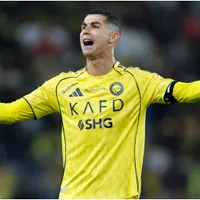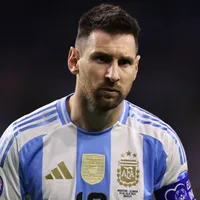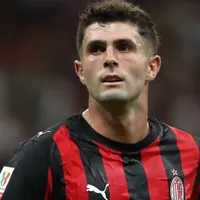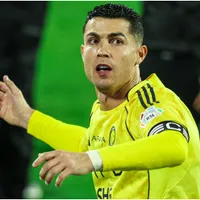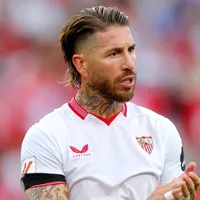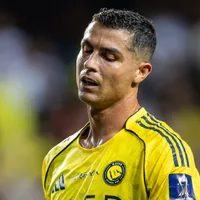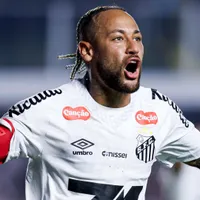
On August 15, 2011, FC Barcelona had finally agreed a deal to sign Cesc Fabregas from Arsenal. The move occurred after one of the longest transfer sagas in history, and there was much hype surrounding the move. Just three days later, Fabregas made his debut in the Spanish Super Cup second-leg as a substitute, as Barcelona lifted the trophy against Real Madrid. Fast forward eight days later, and Fabregas scored as Barcelona lifted the UEFA Super Cup, beating FC Porto 2-0.
Fabregas had started off well. He fit in perfectly with the team, and just as everyone imagined, it felt like a marriage made in heaven. Fabregas was supposed to be the heir to Xavi, to pull the strings in midfield when Xavi stepped down, and lead Barcelona into the future.
However, as time passed, Fabregas did not play in the Barcelona midfield, and instead, played further forward. Often playing as a “False 9” whenever Lionel Messi was absent, Fabregas scored and assisted many goals in the first half of the season, as he still made an impact. Come the end of the season, Barcelona lifted the Copa del Rey, which for a team of their expectations, was certainly a letdown. Euro 2012 came, and this gave the Spanish contingent a chance of defending their European crown. With the likes of Roberto Soldado, Fernando Torres, and Fernando Llorente among the striking ranks, Spain boss Vicente del Bosque decided to play Fabregas as the “False 9”. Spain defended their trophy, but once again Fabregas was played out of position.
Skipping forward two years, Fabregas was sold to Chelsea, while Barcelona replaced him with Ivan Rakitic (the Croat captained Sevilla to a Europa League victory in his final season).
The whole Fabregas affair left both the player and Barcelona with a wry taste in their mouths, as the expected outcome had not taken place. Instead of replacing Xavi, Fabregas had left the club before the Barcelona legend, and Fabregas never really fit into the team. This came as a shock, as Fabregas was a player who came through the famous La Masia Barcelona youth academy. Raised and taught to play tiki-taka, Fabregas played like he was restricted by the style of football. The reason for this comes from his true footballing education, Arsenal.
When he signed for Barcelona, Fabregas thanked Arsene Wenger, saying that he was like a “second father” to him. Wenger developed Fabregas into the player he became, giving the player his debut at the tender age of 16, and entrusting him with the club’s captaincy at the age of 21. Wenger believed in Fabregas, and Fabregas paid back his manager. In the second half of the 2010-2011 season, Fabregas played in the number 10 role behind Robin Van Persie. With little defensive responsibility, Fabregas pulled the strings as the playmaker behind a striker in great form, with Jack Wilshere and Alex Song sitting deeper, and Theo Walcott making inside-forward runs from the right. Fabregas performed at a very high level in this position, and a great example of his role was shown in the 2-0 win over Wolverhampton Wanderers at the Emirates. While Wolves are hardly the best of competitors, the game personified Fabregas’s progression into the number 10 role, playing through balls in behind. For the first goal, Fabregas sent in a lovely cross, which Van Persie volleyed into the back of the net. The second goal was a counter-attacking goal, which saw Fabregas play a brilliant through-ball on the turn into Theo Walcott, who squared for Van Persie to score.
At this point, in early February, Arsenal were riding high, and were still in the race for all of the four competitions they were involved in. In typical Arsenal fashion, injuries came and they ended the season without a single trophy. That season, Arsenal scored the most goals from counter-attacks in the Premier League.
Arsenal’s style of football is said to be the closest to that of Barcelona. Both teams always like to keep possession. However, Arsenal are much more direct than Barcelona. Fabregas always tried playing through-balls behind opposition defenses at Arsenal, and this continued trend did him no favors at Barcelona. At Barcelona, the players pass the ball until they find a true opening in the opposition defense to exploit, and then the ball is played in to that player. Fabregas, in his time at Barcelona, was often accused of giving away possession all too often. He tried playing the ball in behind too many times, often resulting in the opposition gaining possession of the ball. This continued trend has shown at Chelsea. Against Manchester City at the Etihad, in the second half, Fabregas tried playing Costa in behind Mangala and Kompany. Every time he did, Manchester City regained possession of the ball and gained the chance to counter-attack Chelsea. The difference is that Mourinho signed Fabregas to play a striker in behind, to provide through-balls so that Chelsea could break down teams. Barcelona, on the other hand, are required to break down teams weekly, and do not necessarily need a Fabregas to expertise in the role.
Despite everything said, there were other key factors as to why Fabregas did not completely succeed at Barcelona. When he came to the club, Barcelona had a midfield three of Busquets, Xavi, and Iniesta, a trio at the top of their game. There was no way any one of them would lose their position to Fabregas immediately. Fabregas was and never will be a Busquets type of player, and his role is also different than that of Xavi’s. Xavi dictates play, keeps the tempo of the game, while Fabregas is more of a true playmaker. However, by the 2013-2014 season, Xavi’s steady decline started to show. While still a great player, Xavi did not perform at the same levels of past seasons. Fabregas must also take the blame for not performing well in the second half of seasons. In his time at Barcelona, no other player tallied as many assists as him. A majority of these came in the first half of each season. When he left for Chelsea, the official FC Barcelona website shot a parting blow at the player, stating that he did not perform at the level required in the second half of each season he was there.
Fabregas’s form so far at Chelsea has earned him many plaudits. However, his form is hardly a surprise. Fabregas has always been known as a fantastic midfielder, which is why he has attained 92 caps for the Spanish National Team, not an easy accomplishment in a stacked side. Despite this, he has often come off the bench and not started in many of his appearances. His impact has often been vital, as Fabregas scored the winning penalty to put Spain into the Euro 2008 Final, set up the winning goal in the 2010 World Cup Final, and played an important role in Spain’s capturing of Euro 2012. Jose Mourinho has provided Fabregas with the freedom of playing where he feels best, in midfield, and not fitting him onto the pitch in positions where he is a square peg in a round hole. Mourinho calls his position as the “Number 8”, where Fabregas is in charge of helping his side control the game, but to also take up the Number 10 role, often switching positions with Oscar. Fabregas’s passing ability has never been in question, and his passes to Andre Schurrle and Diego Costa against Burnley and Arsenal respectively have earned him lots of praise. Mourinho, by placing Fabregas a bit deeper, has required him to improve defensively, putting in more tackles than before. At Arsenal, Fabregas was the focal point of the team in his later years there. As the Number 10, he was the main man. At Chelsea, the team is filled with stars, including Eden Hazard and Diego Costa ahead of him. However, Jose Mourinho has made the importance of Fabregas clear, and the player has put in superb performances all season.
Performing well again, Fabregas is a key cog in Chelsea’s rank, as they aspire to win the Premier League and conquer Europe. Come the end of the season, he will be truly judged, but for now, Cesc Fabregas is hitting all the right notes, and so are Chelsea.
Follow Saad on Twitter @PrezunesRashid.

